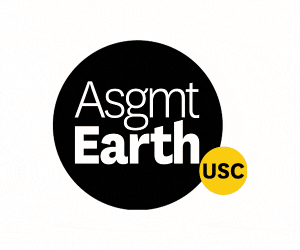Leqembi, which earned full FDA approval in July, could help improve the lives of patients with early stages of Alzheimer’s. Despite limitations, it offers hope for taking on the challenges of the disease.
USC researchers played a key role in a new treatment for Alzheimer’s disease, the first with full approval to target a suspected root cause of the condition, offering hope to those with the disease and their families.
The Food and Drug Administration approved Leqembi, the brand name for the treatment, in July, after reviewing research co-authored by Dr. Paul Aisen, founding director of the USC Alzheimer’s Therapeutic Research Institute, part of the Keck School of Medicine.
The results of the trial indicated the treatment can slow cognitive decline in those with early signs of Alzheimer’s disease. When given over a period of a year and a half, Leqembi has the potential to slow cognitive decline by roughly five months. Ongoing research at USC could lead to expanded applications of the treatment.
Lecanemab, the scientific name for Leqembi, uses lab-made antibodies to target and remove amyloid plaques — clumps of proteins in the brain that have been considered a contributing cause of Alzheimer’s development.
Alzheimer’s, the most common type of dementia, is a brain disease that gets worse over time and impacts memory and thinking. Leqembi isn’t considered a cure for Alzheimer’s and cannot reverse the effects of the disease, though it can slow its impact. The disease affects more than 6 million Americans, a number that is expected to triple in the next 40 years, according to the Centers for Disease Control and Prevention.
Dr. Lon Schneider, director of the State of California Alzheimer’s Disease Center at USC, said Leqembi is being prescribed to treat patients at USC — but it is currently restricted to those who have been evaluated by a team of experts that identify appropriate candidates for the treatment.
Only a narrow group of people could qualify — people with advanced stages of Alzheimer’s or people on certain medications, for example, cannot take Leqembi — which is why the Keck Medical Center had put the selection process in place, Schneider said.
“We’re not quite sure how this medication will work in the real world,” Schneider said. “These are some basic uncertainties that then make this controversial.”
Schneider noted that, because of a lack of strong current options, patients have uncertainty and anxiety about what to do – some saying they “must take a chance” with the treatment.
Leqembi’s approval comes on the heels of a controversy over whether amyloid plaques are indeed the right target for Alzheimer’s treatments.
Last July, the research journal Science published its findings from a six-month investigation into a 2006 study, widely cited in support of the amyloid theory, alleging that its author had presented digitally tampered images as evidence. This followed a separate investigation in 2021, wherein a neuroscientist at Vanderbilt University found that research for an experimental Alzheimer’s drug, Simufilam, included several altered or duplicated images.
Adding to the complex controversy in the field is the FDA’s “accelerated approval” of Aduhelm — another antibody treatment that targets amyloid — in 2021 based on the predicted benefit of the treatment. A long-term observational trial meant to better understand the impact of the treatment was terminated after Biogen, the biotechnology firm behind the drug, anticipated limited use of the drug. (Biogen, in partnership with Japanese drugmaker Eisai, also developed Leqembi.)
Unlike Leqembi, Aduhelm has not received traditional approval from the FDA. While the Alzheimer’s Association supported the accelerated approval of Aduhelm, citing the “unmet need” for a treatment, critics said Aduhelm did not have enough evidence to be widely used for patients.
The House of Representatives’ Committee on Oversight and Accountability conducted an 18-month investigation into the approval process, and concluded that, among other things, “FDA’s interactions with Biogen were atypical and failed to follow the agency’s own documentation protocol.”
Still, there is research that suggests amyloid — which has been a cornerstone hypothesis for decades for Alzheimer’s — plays a fundamental role in the disease. In addition to Leqembi’s promising results, trials for a separate treatment called Donanemab are boosting optimism that targeting amyloid can slow the effects of Alzheimer’s disease.
“Amyloid-lowering treatments represent a major advance in [Alzheimer’s disease] therapeutics and are moving into the clinic,” Dr. Michael Rafii, a neurologist and the medical director of the USC Alzheimer’s Therapeutic Research Institute, told me over email.
Leqembi costs roughly $26,000 a year, and while the medication is generally covered by Medicare, patients are still responsible for copayment costs and the expenses that stem from associated medical tests.
Besides perhaps the most obvious obstacle of the price, there are other factors standing in the way of receiving treatment. Patients seeking Leqembi must receive a test to show they have a buildup of amyloid, Schneider said. The treatment is administered every two weeks intravenously, meaning patients must take the time to travel to a specialized infusion center to receive it.
Leqembi has the risk of causing swelling or excessive bleeding in the brain, he said, of which a small portion of incidents can be serious. This requires patients to receive regular evaluations from their physicians as well as ongoing medical imaging to ensure they don’t develop complications.
Despite the challenges and limitations, Schneider said new treatments like Leqembi are iterative steps towards progress in tackling Alzheimer’s.
“We continue to make progress,” Schneider told me. “It’s just that we don’t make progress as fast as people want – as fast as we want.”
The research conducted on Leqembi and its incorporation into treatment for patients highlights USC’s increased focus on translating foundational lab research into useful applications in the healthcare setting.
“Increasingly, many scientists hope to be able to see evidence of impact of their work on society,” Dr. Sarah Hamm-Alvarez, associate dean for basic and translational research at the Keck School of Medicine, told me over email. “The focus on translation of basic science findings is a fundamental step in this process.”
USC’s Alzheimer’s Therapeutic Research Institute is also helping lead an expanded study of Leqembi, testing the treatment for participants who have higher levels of brain amyloid but do not yet have symptoms of Alzheimer’s, Rafii said. Insights from the new research could shed light on whether Leqembi can also be used to prevent the disease for those at risk.
The institute is exploring other treatments to address different stages of the disease, including a treatment that targets both amyloid and the tau protein, an additional hallmark of Alzheimer’s disease.
“We will continue to test the most promising therapies across the spectrum of [Alzheimer’s disease],” Rafii said.
Schneider said current research explores many unique angles of how to treat and prevent the disease, with hope for even more significant improvements on the horizon.
“We have got to launch the rocket – and that’s what we’re doing,” Schneider told me. “That’s where the hope is.” ❋











